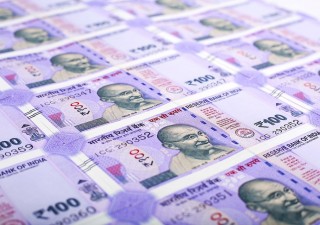Tobacco with Green Packets and Graphic Warnings Are Coming Soon
06 September 2012

On August 15, 2012, cigarette companies led by British American Tobacco Australia (BATA) lost a court challenge in the Australian High Court when the court upheld plain packaging legislation under the Tobacco Plain Packaging (TPP) Act BATA was joined in the suit by Japan Tobacco International, Philip Morris and Imperial Tobacco.
The majority of the High Court rejected the challenge, so tobacco products in Australia will be sold in plain olive green packets with large graphic health warnings and brand names in small font beginning December 1, 2012.
BATA, represented by Corrs Chambers Westgarth and barrister Allan Myers, claimed that the legislation would result in the government acquiring trademarks without appropriate compensation. However, says Chris Round, a partner in Middleton’s IP practice, the court ruled that “the space on the packaging has not been compulsorily acquired by the Australian Government.”
“The High Court has not yet published the full reasons for its decision to reject the constitutional challenge mounted by the tobacco companies, so at this stage we can only speculate as to the underlying reasons why the law was held to pass the constitutional test,” Melinda Upton, a partner at DLA Piper in Sydney told Asia IP.
Although BATA claimed that the legislation is contrary to a specific point in the Australian constitution, the High Court rejected that argument. “The High Court has not found that the plain packaging legislation contravenes the Australian constitution. It has been found to be valid Australian legislation,” said Round.
Upton agreed with Round. “The Government’s counter-argument that plain packaging does not equate to an acquisition of IP, but rather constitutes a restriction and limitation on the use of these marketing tools (with the brand owners maintaining full rights with respect to their trademarks and brand imagery), is an argument which may have gained traction from a majority of the High Court,” explained Upton.
Industries such as alcohol could become the next targets for similar legislation. “There is some prospect that the Australian Government may use similar legislation with respect to alcohol or gambling industries,” noted Round.
Upton says that while the Government has been careful to note that this type of measure is specific to the tobacco industry and not one which can or will be applied to other vice products, it will be interesting to see the extent to which this legislation has ramifications for and promotes discussion and public consultation in other markets. “No doubt policy makers in peripheral markets believe that the branding of products in other industries need to be regulated as a vital preventative public health measure,” she says. “However, the extent to which this test case will act as a precedent for other industries is one that will need to be closely monitored once the legislation takes full effect.”
The tobacco companies have argued that the law will lead to an increase in counterfeit cigarettes. “Plain packaging will make Australia a magnet for the growing black market in tobacco, which already costs the Australian government nearly US$1.05 billion per annum in lost revenue,” said Imperial Tobacco spokesperson Sonia Stewart.
“What this means is that tobacco companies will have to be more strident in ensuring they protect their ability to take action against counterfeiting, a move the Government has mentioned [the companies] will enforce through provision of alphanumeric codes, covert markings and forensic level differentiation of the packaging,” says Upton, “Along with this, the onus will squarely rest on tobacco companies who will need to ensure that, particularly over the coming months, they vigorously pursue technologies and other surveillance and enforcement strategies to prevent the development and supply of counterfeit and illicit cigarettes.”.
Round calls the belief that the law will lead to increased black market activity controversial. “This allegation is not supported by all in Australia,” he said.






